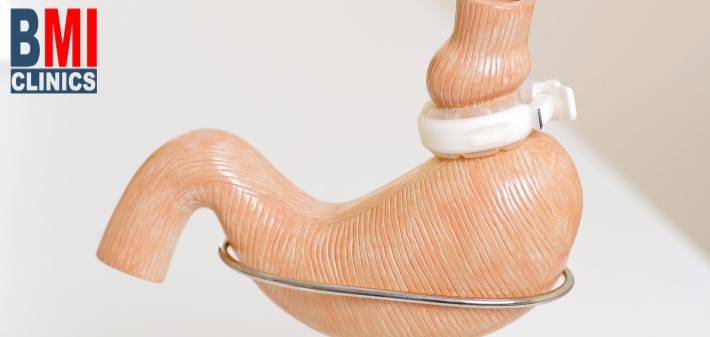Even though the gastric band (or lap band) surgery procedure was extremely popular several years ago, as it stands now, Doctor Safa and many surgeons no longer recommended this type of surgery due to the long-term complications that are associated with it, as well as the emergence of safer and more effective procedures. In this article, we are going to look at some of the primary reasons why Doctor Safa no longer recommend the lap band surgery.
Lap band less effective at producing long-term results.
The main reason why Doctor Safa and many bariatric surgeons no longer recommend the lap band is that it is less effective than other procedures when it comes to sustaining long-term results. A study that was conducted in Italy, which consisted of a group of patients that underwent lap band surgery and another group that underwent gastric bypass surgery, sought to see the long-term effects that each distinctive surgery had on the patients, ten years after they initially underwent it. What the researchers behind the study found was that the patients in the gastric bypass group, lost a significantly greater percentage of excess weight (69%) compared to the lap band patients who lost 46% of their excess weight over the ten-year span. It is also worth noting that they also observed that approximately 40% of the lap band patients needed more surgery, over the course of ten years, in comparison to the gastric bypass group.
Abundance of complications.
Besides the fact that gastric banding patients, usually see slower initial weight loss than patients of any other type of weight loss surgery, the band itself may loosen and lead to an increase in the pouch’s size (less food restriction). This in itself will allow you to eat more. As a matter of fact, statistics demonstrate that while it may be true that patients may experience common side effects that are associated with laparoscopic surgical procedures overall, there are several different complications that are related specifically to the band. For example, as the time passes, it is possible that the band will slip out of position and subsequently block the outlet stemming from the stomach. In some cases, it may even erode into the lining of the stomach itself, which would require additional surgical procedures in order for it to be repaired.
Higher Failure and Revisions Rates.
The medical community has come to realize that gastric banding, has higher failure and revision rates, in comparison to gastric sleeve or gastric bypass. A prime example of such would be the study that was conducted by the University Obesity Center in Belgium. During the study, researchers concluded that laparoscopic gastric band surgery gives a 50% chance of experiencing a complication during the first five years, which is significantly higher than any other weight loss surgery.
Does not help to repair liver damage as efficiently as other procedures.
Liver disease commonly known as Non Alcoholic Fatty Liver Disease (NAFLD) is estimated to be present in as many as 86% of everyone who suffer from severe obesity. If left untreated, it has the potential to damage the liver and lead to the development of cirrhosis . One of the reasons why many surgeons no longer recommend the lap band procedure is due to the fact that certain procedures such as gastric bypass surgery is significantly more superior than the lap band surgery when it comes to repairing liver damage that was caused by severe obesity.
The Original Manufacturer Lost Confidence in Their Own Product.
Another reason why this procedure is not recommended anymore is that the original manufacturer of the Lap Band – Allergan Inc. – felt so unconfident about their own product that they sold it. Allergan announced that it struck a deal to sell its failed treatment product back in 2013. This was due to the fact that the medical community as a whole, criticized it as being less effective and significantly slower to produce results, in comparison to other weight loss surgery procedures. The point being is that, the company felt unconfident about the effectiveness of their product, that they sold it to another company. This in itself is seen as a red flag within the medical community, because rarely if ever, does a manufacturer sell the rights to their own product to another company if it is performing as expected in terms of profitability and value to the customer.









